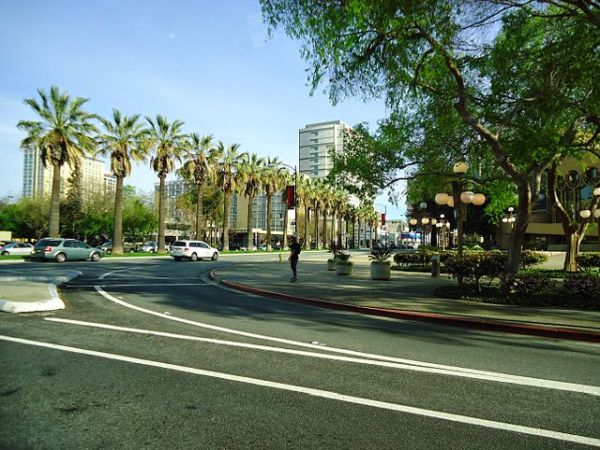Despite alt-right attempts to brand the Bay Area and California as “cesspools,” San José was recently ranked “sixth greenest city in the US” based on analysis by personal finance and consumer education outlet WalletHub, which shows efforts paying off by the city’s Climate Smart San José.
Bay Area cities San Francisco, Oakland and Fremont were not far behind on the list, with San Diego ranked as number one in the country.
While some might characterize cities as “dirty,” San José Mayor Matt Mahan said that “in an increasingly urbanized world, cities must play the leading role in achieving our climate goals.”
“Green” living was defined by WalletHub’s Adam McCann as “a choice to engage in cleaner, more sustainable habits in order to preserve the planet as much as possible.”
For the analysis, the 100 most populated cities were compared, using 28 metrics across four dimensions: Environment, Transportation, Energy Sources and Lifestyle and Policy.
In the “Energy Sources” category, San José was ranked first out of the 100 cities. This is based on sub-categories of “share of electricity from renewable sources,” “Solar Photovoltaic Installations Per Capita,” and “Number of Smart Energy Policies and Initiatives.” What is notable about the ranking is that the sub-category “Solar Photovoltaic Installations (solar panels) Per Capita” suggests that a significant part of the ranking is due to residents and owners who chose to install solar panels on their buildings when incentivized by state and city programs.
Climate Smart San José, a program adopted by the City Council in 2018, is a community-wide initiative detailing city plans which include meeting the targets of the International Paris Agreement and the City’s “Pathway to Carbon Neutrality in 2030.”
Kerrie Romanow, Director of the City’s Department of Environmental Services, said that the WalletHub report “underscores the environmental commitment by our residents, City Council, City departments, philanthropic organizations, nonprofits and businesses who shaped and realized our climate action plan.”
Nationally, WalletHub ranked San José 13th in Environment, 16th in Transportation and 25th in “Lifestyle and Policy,” a category measuring Community Supported Agriculture, number of Organic Farms and community garden plots per capita, green job opportunities, and number of city incentives for green energy.
While Climate Smart San José doesn’t appear to include urban farming goals, it does provide city resources for residents to create sustainable, reduced-pesticide home gardens. The plan also includes aggressive transportation goals, aiming to reduce the number of drive-alone commute trips to only 40% of all commute trips by 2040.
WalletHub’s website describes the company as “a personal finance outlet that produces reports comparing cities and states in relevant categories with an aim to provide information relevant to a customer’s financial impact.”
The rationale for a financial outlet to conduct a study on green living is twofold: citing a Gallup study showing that 52% of Americans value environmental protection over economic growth, McCann asserted that people are looking to live in places that value sustainability and preservation. Additionally, the growing market for renewable energy creates jobs.
The accolade, said Romanow, “recognizes the San José community who understands the urgency of climate change and takes immediate action to combat climate change, creating a livable community.”



